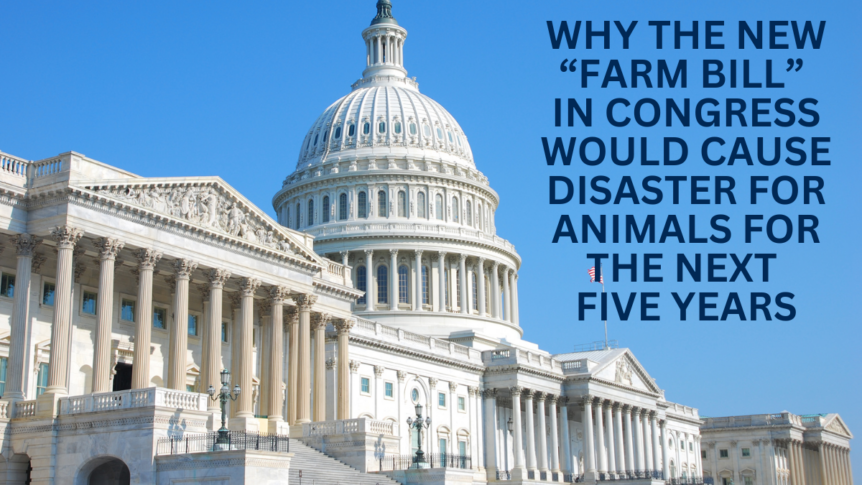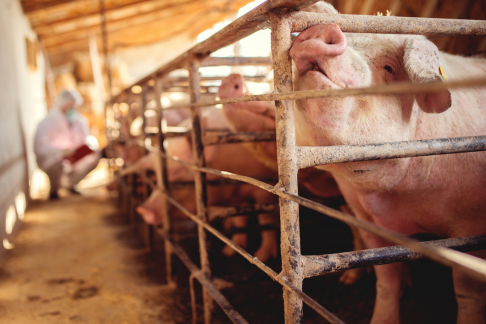Every five years, Congress passes a sweeping “Farm Bill” designed to regulate agricultural policy until the next bill. A new version, already approved by the House Agriculture Committee, contains language designed to nullify Prop 12, one of the strongest animal protection laws in the country, and closes off pathways to gain more like it. This would simply be very bad for animals.
Even without the extreme confinement that Prop 12 outlawed, pigs and other animals still endure cruel practices on a daily basis. After pregnancy, pigs are moved to similarly small and uncomfortable crates while raising their piglets. The piglets’ testicles and tails are often ripped off without anesthetic, often in front of the mother pig.
The pork industry, however, sees cruelty as a way to profit and is unwilling to let even the small reforms of Prop 12 occur. After a failure to strike the law down at the Supreme Court, the industry looks toward Congress to restore its bottom line. The House’s current version of the Farm Bill is designed in favor of the pork industry, and the House Agriculture Committee is fairly transparent about that, citing concerns about the rising cost for producers.
But the danger posed by the Farm Bill is not just contained to the reversal of Prop 12. Since the bill is a blanket statement against any state establishing standards for how the animals they sell and import are treated, it prevents more states from enacting similar legislation. This means that the Farm Bill could establish a country where even marginal progress on the treatment of animals is substantially slowed down, at least until the next Farm Bill.
Animals being sold by Big Ag don’t have more time to wait. According to the USDA, there will be close to 127 million pigs, 32 million cows, and 9 billion chickens raised and slaughtered in US agricultural facilities this year alone. Every day, they endure harsh and immoral conditions that Big Ag will keep subjecting them to unless the law and consumers demand it stops.
Here’s how you can take action today:




Comments 2
But the danger posed by the Farm Bill is not just contained to the reversal of Prop 12. Since the bill is a blanket statement against any state establishing standards for how the animals they sell and import are treated, it prevents more states from enacting similar legislation. This means that the Farm Bill could establish a country where even marginal progress on the treatment of animals is substantially slowed down, at least until the next Farm Bill.
Animals being sold by Big Ag don’t have more time to wait. According to the USDA, there will be close to 127 million pigs, 32 million cows, and 9 billion chickens raised and slaughtered in US agricultural facilities this year alone. Every day, they endure harsh and immoral conditions that Big Ag will keep subjecting them to unless the law and consumers demand it stops.
I am appalled that my congresswoman, Bonnie Watson Coleman, is supporting the Eats Act!!! I’ve written to her several times and just get a generic letter back saying she is supporting it because of some SNAP benefits or something. Ugh!!! She needs to insist that the prop 12 “fix” is eliminated before she votes for it. Children can still be served without doing harm to animals, Bonnie.